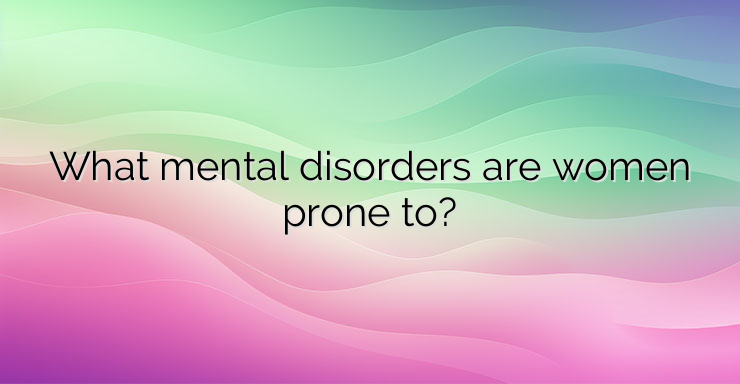Mental health disorders can affect men and women differently. Mental health includes emotional, mental and social well-being. Some of the illnesses are more common among women, such as depression, anxiety and certain eating disorders. There are also disorders that are characteristic only of women. During significant hormonal changes, the manifestation of depressive symptoms is possible, for example, during or after pregnancy – perinatal depression, around the time of menstrual bleeding – premenstrual dysphoric disorder, and during menopause – depression associated with perimenopause. Regarding other mental disorders, such as schizophrenia and bipolar disorder, scientists have not revealed differences in the frequency of diagnosis. Men and women could develop the same mental disorders, but the manifested symptoms would be different. Some symptoms are more common in women than in men. The course of the disease can also be influenced by the gender of the patients. In women, the appearance of various negative emotions is often observed. Some of the observed symptoms are: Constant sadness or feeling of hopelessness; Noticeable changes in mood, energy level, or appetite; Difficulty falling asleep or sleeping too long; Changes in appetite or weight; Abuse of alcohol and/or drugs; Decreased energy or fatigue; Increased feelings of fear or anxiety; Seeing or hearing things that are not real; Diametrical differences in moods – too happy or too sad; Pain, headache or digestive problems for no apparent reason; Anger or irritability; Social isolation; Thoughts or behavior that interfere with work, family or social life; Thoughts of death or suicide, as well as suicide attempts. Making an early diagnosis of a mental disorder is of great importance, as this can prevent a number of serious consequences for the affected person and/or for their loved ones. Disorders can significantly affect the way you think, feel and behave. Depending on the severity, the characteristic manifestations of the diseases and the patient, a strictly individual approach to dealing with the condition is determined. Treatment of mental disorders is complex and usually lasts until the end of life after diagnosis. It may include medication, psychotherapy, and other more alternative therapeutic approaches. References: https://www.nimh.nih.gov/health/topics/women-and-mental-health


Leave a Reply